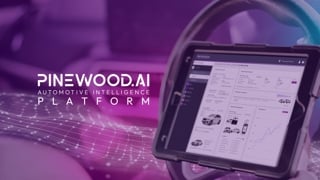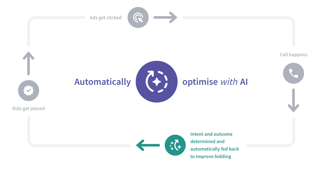Advertisement feature from iVendi
A Dealer Masterclass 2019 commercial partner.

By Rob Severs, vice-president data and insight, iVendi
It’s common to think about advancing technology as something that always brings the consumer more – more choice, more information, more options.
However, at iVendi, we believe the future of online motor retail may bring less. Well, maybe not less exactly, rather the final outcome that you are looking for, delivered as soon as possible in the buying process.
Consider this in relation to vehicle search, for example. We tend to believe it is a good thing if a customer carries out an online search and the result returns hundreds or even thousands of cars. But it can also be interpreted as a sign of failure. Why doesn’t it just deliver the nearest thing to the exact car the customer wants?
 The same criticism can be applied to almost every stage of the online motor retail journey. What we should ultimately be aiming for is providing the right vehicle and the right finance package at the right place and right time.
The same criticism can be applied to almost every stage of the online motor retail journey. What we should ultimately be aiming for is providing the right vehicle and the right finance package at the right place and right time.
How do we achieve this? The answer potentially lies in anticipating the customer’s needs as much as possible, using advanced forms of profiling.
There are two main types now becoming available. The first looks at a user’s past activity. If you know someone has been searching for a specific model of hatchback, priced between £7,000 and £8,000, aged less than three years old, having covered about 15,000 miles, with a finance deal showing payment range between £140 and £160 a month and a deposit of £500, you can provide them with options from your stock.
The second reverses that process, using data gathered over time. It works by looking at a dealer’s used vehicle stock and suggesting the profile of a prospective customer. This will include factors such as gender, age, marital status, residency type, dependents, occupation and income. It can even drill down to profiling customer types on a derivative basis so identifying the difference between purchasers of a five-seater versus seven-seater of the same model.
However, these examples show only the first wave of the technology. In the future, the level of granularity available about how customers behave, about their needs and desires, is likely to increase exponentially. We are not talking about the annoying pop-up ads that follow a lazy Google for something you may want to buy, but using big data to create an almost intuitive customer journey.
It’s about using the information you know about a customer to target their requirements as accurately as possible at the earliest stage in the process.
Of course, there is a second layer to this thinking, which is that some customers will always want to take a longer, more winding route to their purchase, trying out all the different options and choices before making a final decision. Technology will have to meet their needs too, but for successive generations who are increasingly accustomed to online retail making their lives as easy as possible, delivering the right car first time is very likely to be the preferred option.
Founded in 2009, iVendi makes e-commerce solutions that make vehicle selling easier for dealers, vehicle buying easier for buyers, and vehicle finance easier for all. With offices in Manchester and Colwyn Bay and products connected to more than 7,000 dealer locations in the UK, iVendi believes in innovating to deliver results.
Visit www.ivendi.com, e-mail enquiries@ivendi.com or call 0345 226 0503.

















Login to comment
Comments
No comments have been made yet.